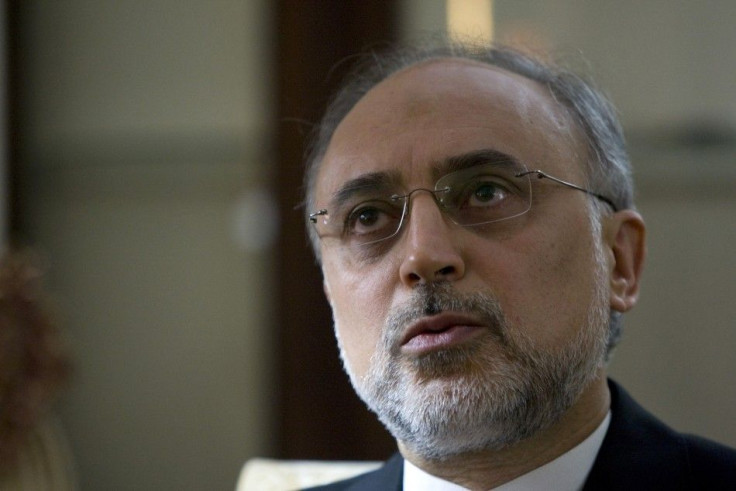Iran Sanctions: Will They Work, or Will They Backfire?

As the United States begins to implement a tough new set of sanctions on Iran, some experts are warning that tightening the economic vise could backfire, embolden the ruling regime rather than weakening it.
The new sanctions, which punish financial institutions that do business with the Central Bank of Iran, is aimed mainly at constraining oil exports, which are the backbone of the Iranian economy.
But there is no guarantee that tightening the screws further on the Iranian economy will slow down the regime's apparent ambitions to develop nuclear weapons. Indeed, despite years of sanctions, Iran's rulers have been defiant of the West's attempts to rein them in. In recent weeks, in response to the sanctions, Iran's rulers have appeared increasingly bellicose, threatening to close down the crucial trade artery of the Straits of Hormuz.
Tougher Sanctions - Wrong Message?
Tougher sanctions, which may have only limited impact because of the regime's intransigence, may be sending the wrong message at precisely the wrong time, says John Limbert, a professor at the U.S. Naval Academy and former senior State Department official who specialized in Iranian policies.
I have to take the president's word at face value that we want a relationship with Iran and we want engagement with Iran based on mutual respect, Limbert said. On the other hand, these sanctions look suspiciously like the aim is not to have mutual respect but to have the other side say 'ok, we give up.'
Moreover, adds George Lopez, a professor of political science and an expert on sanctions at the University of Notre Dame, if Iran does raise the white flag, what then?
You can only coerce them to dialogue, but you're not going to punish them into disarmament, Lopez said. Having squeezed them economically, you had better be ready with a plan and had better be ready with incentives for the plan.
Lopez worries that Congress, which has been more aggressive than the Obama administration in pursuing the harsher sanctions, is solely in punishment mode.
Economic Sanctions: Uneven Record
Part of the problem is that economic sanctions have a historically uneven record. Skeptics point to Iraq, where years of comprehensive sanctions devastated the economy, by one estimate leading to the premature deaths of some 500,000 children, without dislodging Saddam Hussein.
The Iraq-Iran comparison is not precise -- the Iraq sanctions affected the entire economy, whereas the Iran sanctions are targeted specifically at financial transactions that would benefit government or the military. But there is a similar question of whether the government would be moved by the hardships endured by everyday Iranians.
The bottom line object of sanctions is that you put pressure on other elements in a society so they put pressure on their government, but this is far more effective when dealing with democracies where popular discontent is more likely to resonate, said Trita Parsi, President of the National Iranian American Council.
Parsi added that for Iran's rulers, self-preservation could become the overriding consideration.
The nuclear issue is increasingly becoming, in the eyes of the regime, essential to the survival of the regime itself, Parsi said. It has almost reached the level of an existential issue.
Sanctions: Wider Effect Than Their Target
While the sanctions have been aimed squarely at the government and the elite Islamic Revolutionary Guard Corps, the effects have reverberated across much of Iranian society. Banking sanctions have tightened the flow of credit and hurt private businesses, and the value of Iran's currency has plummeted since the new round of sanctions was announced. Iran's economy was already in a recession when sanctions intensified in 2008, impeding a recovery.
I think that over the years the sanctions have been getting further and further from that notion of truly targeted, said Kimberly Elliott, a senior fellow at the Center for Global Development. Once you sanction the central bank of a country, you're not being too targeted anymore. Once you're targeting a sector that makes up something like a third of GDP, you're not being very targeted.
The repercussions do not appear to have significantly diminished the standard of living for average Iranians, in part because the government provides an economic cushion with monthly cash transfers. But the government has increasingly expanded its control over the economy as private enterprise has withered, limiting the economic opportunities available to many middle class Iranians.
Sees Iran's Young Taking Hit from Sanctions
In some sense the brunt of sanctions is really being imposed on young people, said Djavad Salehi-Isfahani, professor of economics at Virginia Tech and an expert on the Iranian economy. They are bearing a disproportionate cost of these sanctions, and that ruins futures. People are losing hope and not seeing the global economy as something good for them.
That does not bode well for the West's credibility in Iran, Salehi-Isfahani said. If anything, the sanctions could turn the Iranian people inward.
What's lacking is the moral force behind the sanctions that would convince Iranians that United States is doing the right thing and their government is in the wrong here, Salehi-Isfahani said. [Those imposing sanctions] are banking on these young people or the middle class blaming their own government for what's going on, and that's a long shot. Much more likely is that these people will suffer.
--
© Copyright IBTimes 2024. All rights reserved.





















